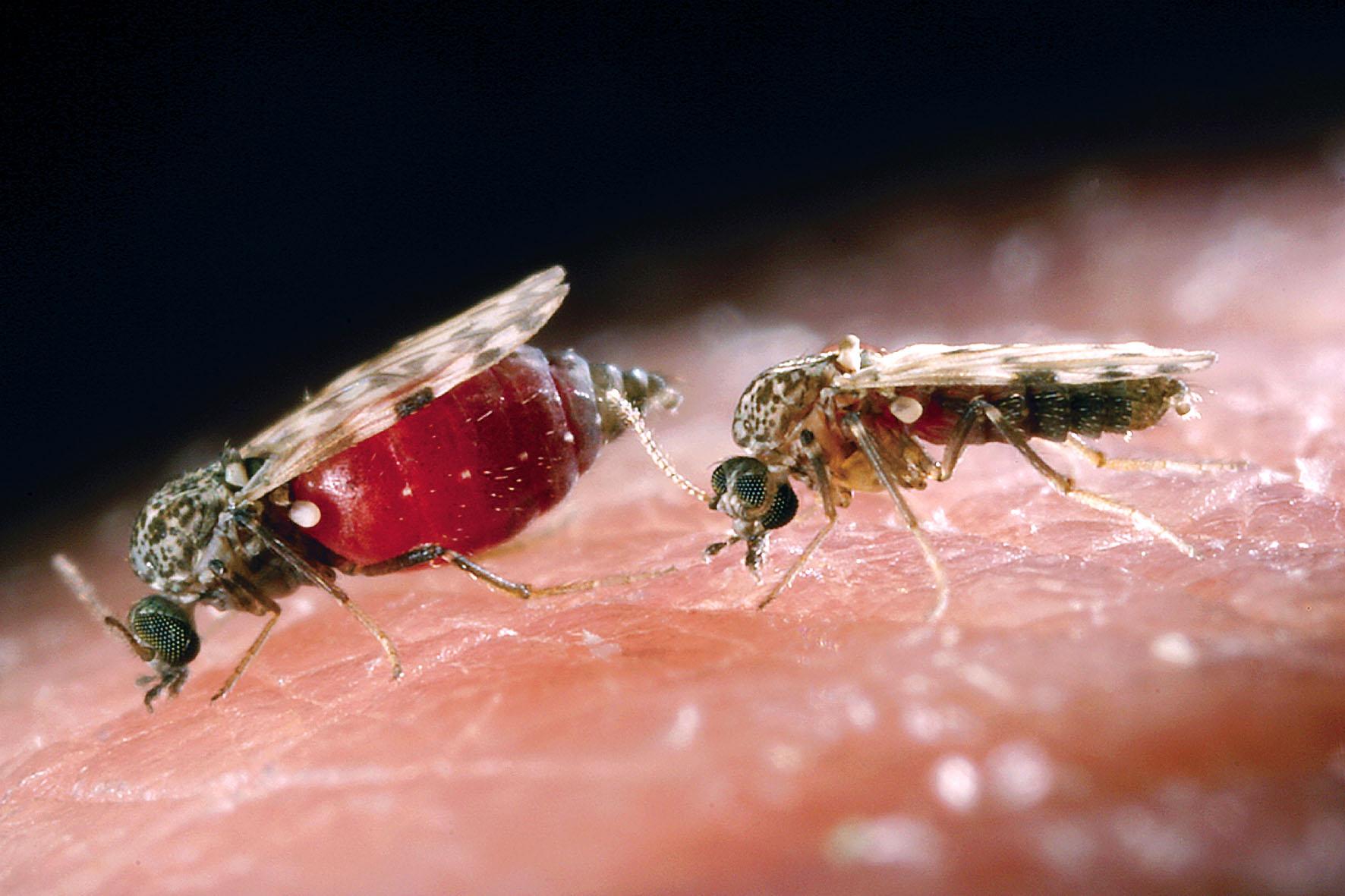Pirbright leading scientist, Dr Simon Carpenter is to be part of a new BBSRC funded project with Dr Paul Kersey from the European Bioinformatics Institute, predicting the emergence and spread of Culicoides-borne arboviruses in Europe according to genetic drivers.
Culicoides biting midges are currently the primary vector of insect spread viruses in Europe. Outbreaks of viruses such as bluetongue (BTV) and Schmallenberg (SBV) continue to have a significant economic impact both through clinical disease and animal trade movement restrictions. With recent discoveries in Europe of more Culicoides-borne viruses that have unknown origins, there is a greater need to understand how they can be controlled to limit devastating impact to both livestock and humans.
“The aim of CuliOme is to understand how microbes within biting midges influence transmission of some of the most economically important viruses of livestock, like bluetongue virus. This will help us predict the spread of these viruses and also may give us new weapons to use in the control of outbreaks in the form of anti-viral microbes that prevent full infection of midges” said Simon Carpenter, Head of the Entomology group at Pirbright. “As part of this project we are again linking up with Paul Kersey at the European Bioinformatics Institute who has been integral in our related project to provide the first full genome sequence for a biting midge worldwide. The project also illustrates the immense value of long term European collaborations, including groups in France and Italy with an outstanding track record of studies in this area. Vector-borne diseases pose significant logistical problems in being able to cross borders rapidly, hence taking a Europe-wide approach is vital in understanding how they can be controlled”.
BBSRC have funded 6 out of 11 new research projects as part of the second joint funding call for the Animal Health and Welfare ERA-Net (ANIHWA) programme. ANIHWA is a four-year European programme consisting of partner organisations from 19 different European countries, including Israel. The programme aims to increase cooperation and coordination of national research programmes on animal health and the welfare of farmed animals including fish and bees.
The six BBSRC funded projects focus on the threats to animal health and welfare such as infectious diseases, as well as new tools and technologies to improve welfare.
Further information on the funding opportunities of ANIHWA can be found on the BBSRC website.
